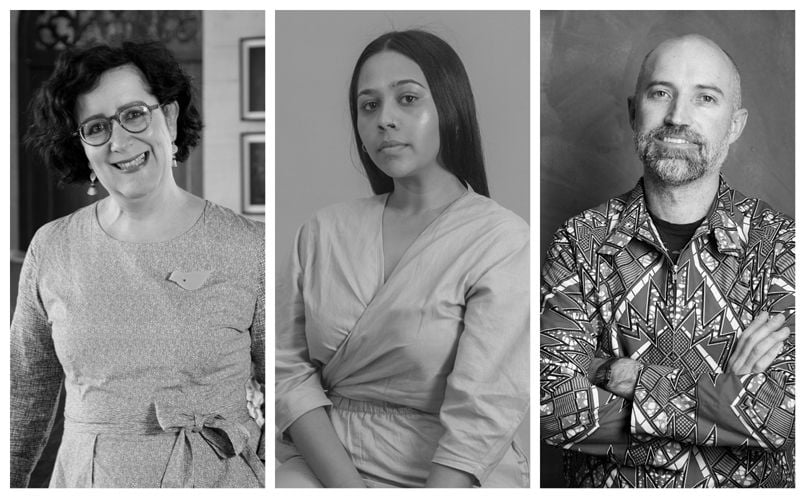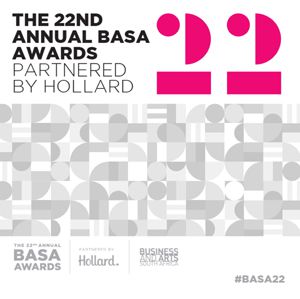Business and Arts South Africa NPC (BASA) champions business investment within the arts. According to Christina Kennedy, "The annual BASA Awards fill a vital gap in the South African awards landscape." Kennedy, a respected arts and culture journalist and commentator, is one of the adjudicators for the 22nd Annual BASA Awards, partnered by Hollard.
Says Heidi Brauer, Chief Marketing Officer for Hollard, "The era of the Fourth Industrial Revolution (4IR) is here and it is already making an impact on every part of life as we know it. This exciting development demands of us, as individuals, organisations and countries, to crystalise and unpack revolutionary thinking. This backdrop sets the scene for this year’s BASA awards, aptly themed ‘Algo-rhythm’. Of course, this is a beautiful play on the notions of algorithms, which are indicative of the burgeoning 4IR age."
Working with this theme, Ralph Borland has been commissioned to design and produce the winners’ trophies for this year's Awards. Borland is a South African artist, curator and interdisciplinary knowledge worker, who teases out issues of power, activism, and social engagement via designed objects. "We are extremely excited by Ralph's work," says BASA Head of Marketing, Savannah Feeke. "Earlier this year we supported his residency at the Arts and Creative Technology Centre in Gwangju, South Korea. At the same time we started workshopping the theme for this year's awards with our partner Hollard, and we soon realised that Ralph's work was a perfect fit for the direction our conversation with Hollard was taking."
Commenting on the theme and his design process for the BASA Awards project, Borland draws the connection between algorithms and pattern, especially complex patterns found in nature, which are produced by algorithmic processes. "From the distribution of seeds on a sunflower, or the shape of a sea shell, or the fur of an animal. These are the result of ‘complexity’: natural processes acting in similar ways to computer code," he explains.
"You also find pattern in craft, such as weaving or beading, produced through an algorithmic process – a formula that creates a pattern (the late ethno-mathematician Paulo Gerdes in Mozambique wrote about these). Wire artists use mathematical approaches, such as topology, in making a single piece of wire become a three-dimensional shape. We use ‘code’ in our projects at African Robots, in the computer code with which we programme microchips to create movement, light and sound in our artwork."

L-R: Heidi Brauer (Hollard), Savannah Feeke (BASA) and Ralph Borland (African Robots)
African Robots has produced some compelling insect automatons based on local creatures, and Borland decided that the beloved Southern African flightless tok-tokkie beetle would be an ideal expression of the ‘Algo-Rhythms’ theme of the Awards. His Tok-Tokkie automaton BASA Awards trophy is a wire-and-3D-printed beetle with eyes that light up, and which taps on a found-object base. "As you see the trophies displayed together, notice how they produce an overall complexity in their behaviour, which echoes the Awards’ theme of algorithmic processes echoing natural processes," says Borland.
Borland studied Fine Art, majoring in Sculpture and English, at the Michaelis School of Fine Art, at the University of Cape Town (UCT). His final-year work, a large-scale sculptural and sound installation, titled ‘Transwerk’ (1997) (after the train yards at which they were exhibited), was awarded a distinction and won the class medal for Sculpture. He studied the creative use of electronics for his Master’s degree, in the Interactive Telecommunications Program at New York University. His thesis work, ‘Suited for Subversion’ (2002), a protective performance suit-for-street protest, was selected for the exhibition, Safe, at the New York Museum of Modern Art in 2005, and later acquired for its permanent collection. His current projects, ‘African Robots’ and ‘SPACECRAFT’, have been funded by Pro Helvetia, British Council, the Department of Arts and Culture (DAC) the National Arts Council (NAC) of South Africa and Business and Arts South Africa NPC (BASA).
The 27 finalists for the 2019 BASA Awards have been announced in the October issue of Creative Feel magazine (www.creativefeel.co.za) and the winners will be announced at event to be held later this month at Beechwood Gardens, the classic three-and-a-half acre Johannesburg garden, laid out in 1945 by legendary landscape architect Joane Pym.

















































